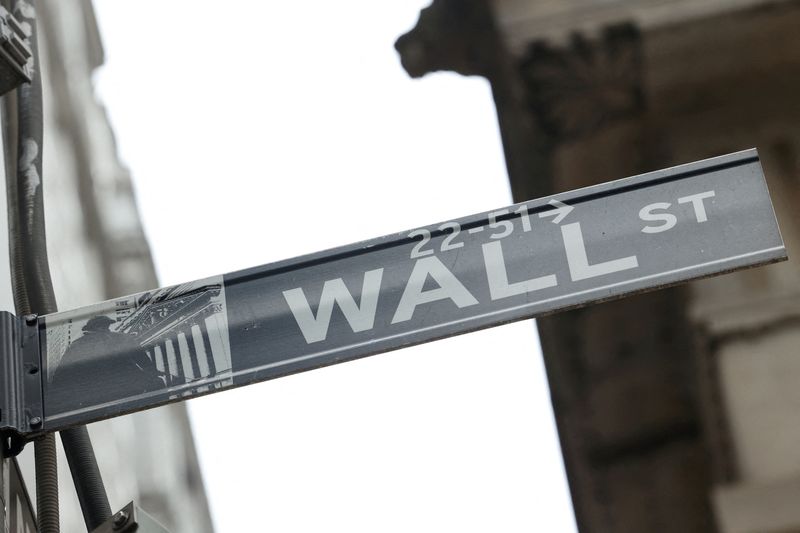Investing.com’s stocks of the week
By Chibuike Oguh and Niket Nishant
(Reuters) - Shares of U.S. regional lenders rose on Monday, led by a rebound in PacWest Bancorp, as investors turned their attention to the U.S. debt ceiling debate instead of the crisis of confidence that has led to the collapse of three banks in two months.
Regional bank stocks have benefited as the market's focus has shifted away from their problems and toward the debate over raising the federal debt ceiling, said Ryan Detrick, chief market strategist at Carson Group in Omaha.
"We survived the weekend without a major bank calamity so there's some relief rally going on with regional banks bouncing," Detrick said.
PacWest Bancorp shares rose 17.6% but remained down 77% year-to-date. Western Alliance (NYSE:WAL) Bancorp rose 12% but was still down 48% year-to-date. Comerica (NYSE:CMA) Inc rose 7.3%, Fifth Third Bancorp (NASDAQ:FITB) was up 2.5% and KeyCorp (NYSE:KEY) added 6.7%. The KBW Regional Banking Index rose 3.2% but remained down 36% year-to-date.
U.S. Deputy Treasury Secretary Wally Adeyemo dismissed the idea of minting a platinum coin to avoid a U.S. default, saying the only workable solution was for Congress to raise the federal debt ceiling. Treasury Secretary Janet Yellen also has rejected the idea of a platinum coin to skirt the debt ceiling and fund government expenses.
Hedge fund manager Michael Burry, who rose to fame with his bets against the U.S. housing market before the 2008 financial crisis, added positions in several regional banks during a tumultuous first quarter for the sector, according to securities filings released on Monday.
Burry's Scion Asset Management’s positions included 150,000 shares in First Republic Bank (OTC:FRCB), 250,000 shares in PacWest Bancorp, 850,000 shares in New York Community Bancorp (NYSE:NYCB), and 125,000 shares of Western Alliance Bancorp, filings showed. Burry's firm also added a position in Wells Fargo (NYSE:WFC) & Co. The filings did not specify whether Burry, widely known as "the Big Short" investor, had shorted the stocks previously.
By contrast, Bridgewater Associates, one of the world's largest hedge funds, sold off U.S. bank stocks in the first quarter as the industry was roiled by a crisis sparked by the collapse of Silicon Valley Bank, according to regulatory filings.
The firm, founded by billionaire Ray Dalio, cut its holdings to zero in five U.S. banking giants: JPMorgan (NYSE:JPM) & Co, Bank of America Corp (NYSE:BAC), Wells Fargo & Co, Goldman Sachs Group Inc (NYSE:GS) and Morgan Stanley (NYSE:MS). It also roughly halved its exposure to Citigroup Inc (NYSE:C), the filings showed.
Meanwhile, Greg Becker, former CEO of failed lender Silicon Valley Bank, apologized in congressional testimony for its "devastating" collapse while citing rising interest rates and social media as key causes of its demise.
The bank was responsive to regulator concerns about its risk management and working to address issues when an "unprecedented" bank run led to its failure, Becker wrote in prepared testimony published on Monday by the Senate Banking Committee.
Becker will testify before the Senate Banking Committee on Tuesday alongside Scott Shay and Eric Howell, the former chair and president, respectively, of Signature Bank (OTC:SBNY). Regulators had closed Signature Bank on March 12 after it experienced liquidity issues following SVB’s collapse two days earlier. First Republic Bank was the third and largest bank failure since the 2008 financial crisis.
(This story has been refiled to correct Ryan Detrick's firm to Carson Group, not LPL Financial (NASDAQ:LPLA), in paragraph 2)
